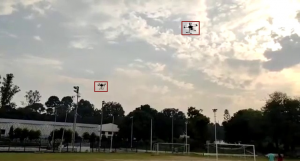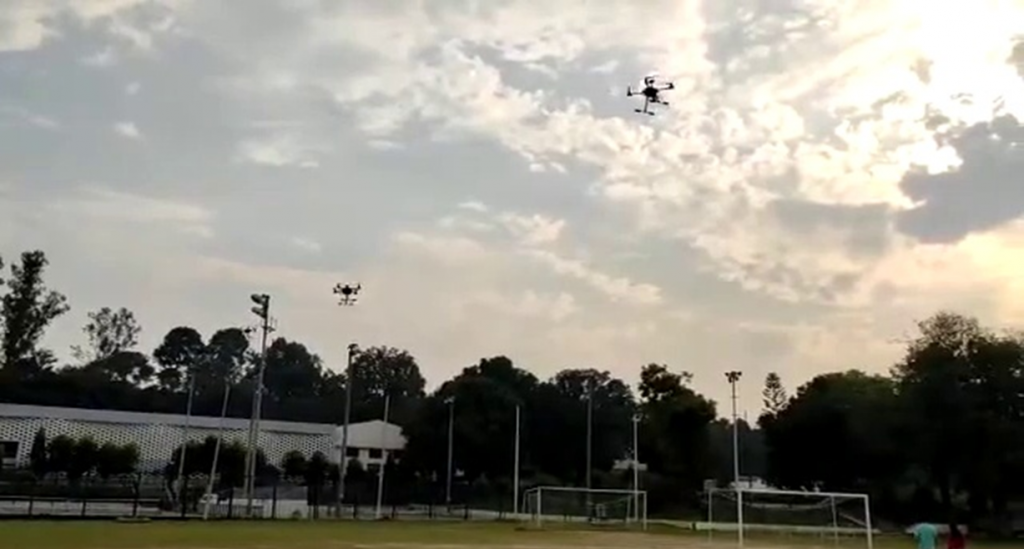The task
Unmanned Aerial Vehicles (UAVs, drones) are increasingly being used in both civilian and military sectors – ranging from autonomous transport to surveillance. At the same time, they pose a security risk when they infiltrate restricted zones or critical infrastructure unnoticed. The goal is the automatic detection and classification of UAVs in real-time, enabling precise and early alerting – regardless of weather, lighting, or background conditions.
The challenge
Drones vary greatly in size, shape, and flight behavior. Traditional radar systems face limitations when dealing with low altitudes or small objects, while optical methods must cope with changing light conditions, motion blur, and background objects. Therefore, AI must be able to reliably distinguish UAVs from birds, flying objects, or sensor artifacts – all with minimal computational load and maximum reliability, directly in the field.
The solution
Our AI solution recognizes UAVs based on characteristic features such as silhouette, movement and propeller structure.
The model runs directly on a System-on-Module (SoM) and processes up to 60 images per second in real time.
It uses a compact architecture with only 2 MB model size and 1.4 GOPs computing complexity, optimized for embedded use.
Using synthetic training data, the system can be flexibly adapted to different aircraft and scenarios – from open areas to urban environments or protected areas.
Key technical data
| Parameter |
Value |
| Model size |
approx. 2 MB |
| Complexity |
approx. 1.4 GOPs |
| Platform |
SoM / Embedded |
| Frames per second |
60 FPS |
| Test accuracy |
98,3 % |

The added value
UAV detection enables reliable monitoring of sensitive airspaces without the need for large computing units or cloud connections.
The AI runs completely locally, is robust against the effects of weather and delivers precise results even in changing light conditions.
This enables security and monitoring systems to react at an early stage, minimize risks and automate operational processes.
The result: fast, energy-efficient and reproducible object detection – directly on site.

